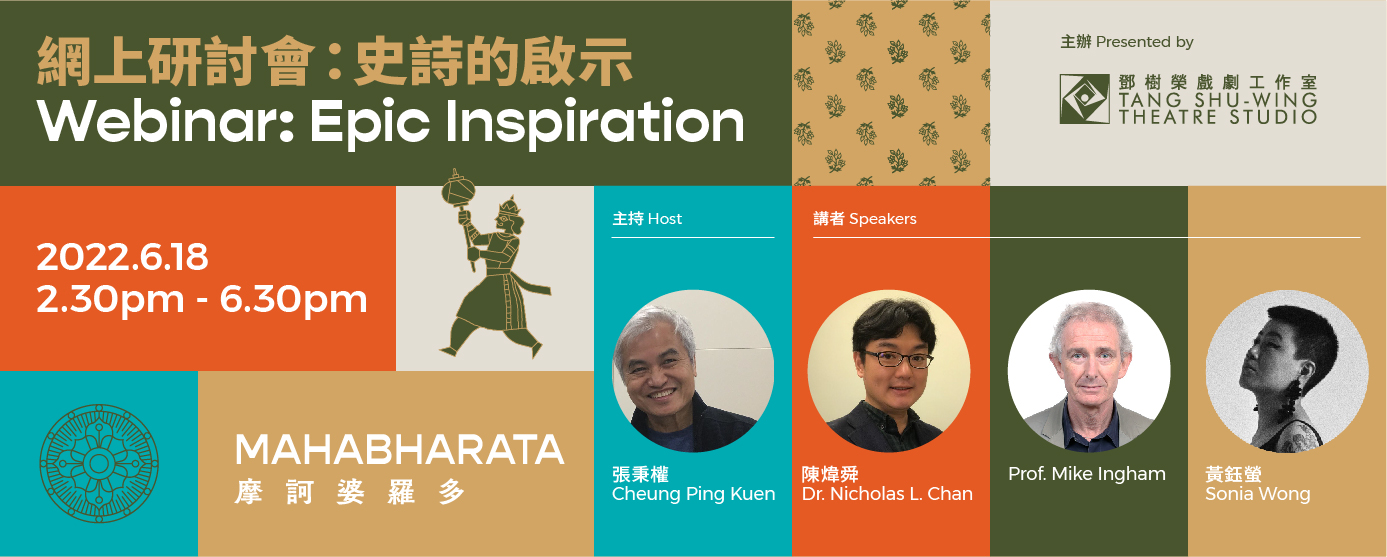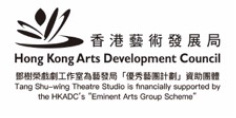An epic is a combination of historical facts and mythology; an ingredient in religion; literature through word of mouth; and the memories of a nation. As a production of the Mahabharata by Tang Shu-Wing Theatre Studio will be shown next year, a seminar is held now to examine some of the most important Epics globally – with the aim of discovering a possible cultural lineage that exists among all human races and through comparisons with the issues of today, so as to enable us to better comprehend certain wisdoms that can better our lives.
──Tang Shu-wing
=====================
An overview of 4 epics: “Chu Ci: Nine Songs”, “Paradise Lost”, Epic of Gilgamesh and Mahabharata
【Chu Ci: Nine Songs】 (In Cantonese)
This talk is divided into two parts. In the first part, the epic tradition in the context of world literature is reviewed. Moreover, Taking Chu Ci or the Songs of the South as example and focusing on the “Nine Songs”, we are going to discuss the possibility and uniqueness of epics in Chinese literary heritage in the second part.
Speaker︱Dr. Nicholas L. Chan (Associate Professor in the Department of Chinese Language and Literature, CUHK)
【John Milton’s Paradise Lost – the Greatest English Epic 】(In English)
Poet John Milton composed his famous epic poem Paradise Lost, consisting of ten-books and more than ten thousand lines of pentameter verse, when he was already blind. He dictated the narrative poem between 1658 and 1663 to family members and friends, and relied entirely on his biblical knowledge and creative imagination to see the narrative in his mind’s eye. The epic work tells the story of Satan’s rebellion against God, his fall from heaven and his temptation of Adam and Eve in the Garden of Eden, leading to their expulsion from paradise. Paradise Lost is rightly considered a masterpiece of Western literature; it changed the whole concept of the epic genre, by challenging the established grand narrative method of epics, such as Vergil’s Aeneid, and humanising the key figures of Lucifer/Satan and Adam and Eve, thereby overturning the Old Testament theological perspective. The Miltonic style influenced later rebellious Romantic poets, such as Blake, Byron and Keats, and inspired pictures by Delacroix and Salvador Dalì. It is an amazing work by a great artist, a man whose defence of free speech in his life’s work remains a testament to human dignity.
Speaker︱Prof. Mike Ingham(Adjunct Professor in the Department of English, CUHK)
【Epic of Gilgamesh】(In Cantonese)
This seminar will focus on epics and narrative literary works such as the Mahabharata and the Gilgamesh, and explore the development and cultural significance of epic poetry as a genre of text in different civilizations through aspects such as its language, structure and transmission. The speaker will draw on the developmental framework of the divergence in roles between the shaman and historian in the early days of ancient Chinese civilization, to compare mythology and the study of epics to demonstrate the multiple functions and meanings of epics as mythological, historical, religious, literary and popular texts.
Speaker︱Sonia Wong (Cultural Studies scholar)
Date: 2022.6.18
Time: 2.30pm – 6.30pm
Host: Cheung Ping Kuen (Chairman of International Association of Theatre Critics [HK])
Speaker:
• Dr. Nicholas L. Chan (Associate Professor in the Department of Chinese Language and Literature, CUHK)
• Prof. Mike Ingham (Adjunct Professor in the Department of English, CUHK)
• Sonia Wong (Cultural Studies scholar)





